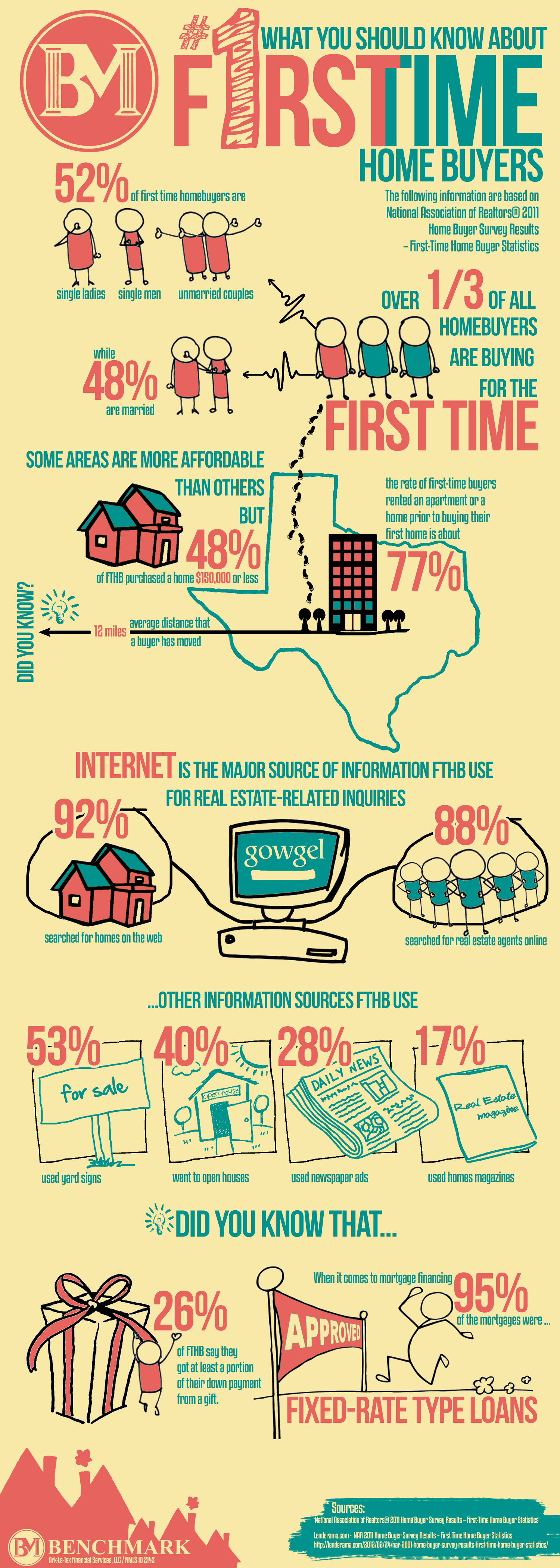The Most Effective Tips You Will Certainly Check Out Home Mortgages
Created by-Fink McCannA mortgage is truly a huge milestone in a person's life, whether they are 18 or 80 when they get it. The fact is that knowing the right things before you get started can make the process better. This article has what you need to know, so read it in full.
Before trying to get a mortgage approval, find out your credit score. Mortgage lenders can deny a loan when the borrower has a low credit score caused by late payments and other negative credit history. If your credit score is too low to qualify for a mortgage loan, clean up your credit, fix any inaccuracies and make all your payments on time.
Before you apply for a brand new mortgage, determine whether or not your home as decreased in value. Even though you might think everything is great with your home, the lending institution might value it much differently, and that may hurt getting approved for the mortgage.
If the idea of a mortgage looming over your head for the next few decades does not appeal to you, consider refinancing over a shorter period. Although your monthly payments will be more, you'll save a lot in terms of interest over the life of the loan. It also means being mortgage-free much sooner, and owning your home outright!
Before applying for a mortgage loan, check your credit score and credit history. Any lender you visit will do this, and by checking on your credit before applying you can see the same information they will see. You can then take the time to clean up any credit problems that might keep you from getting a loan.
If a fantastic read denies your mortgage loan, don't get discouraged. One lender's denial does not doom your prospects. Shop around and investigate your options. Perhaps it will take a co-signer to help secure that loan for you.
Determine what sort of mortgage you want. There is more than one kind of home mortgage. Knowing about the different types and comparing them against each other will make it easier for you to decide what type of mortgage is appropriate for your situation. Talk over your mortgage options with your lender.
Start saving all of your paperwork that may be required by the lender. These documents include pay stubs, bank statements, W-2 forms and your income tax returns. Keep these documents together and ready to send at all times. If you don't have your paperwork in order, your mortgage may be delayed.
Try shopping around for a home mortgage. When you do shop around, you need to do more than just compare interest rates. While they're important, you need to consider closing costs, points and the different types of loans. Try getting estimates from a few banks and mortgage brokers before deciding the best combination for your situation.
Do not sign a home mortgage contract before you have determined that there is no doubt that you will be able to afford the payments. Just because the bank approves you for a loan does not mean that you could really endure it financially. First do the math so that you know that you will be able to keep the home that you buy.
Having a strong employment history will make it easier to qualify for a home mortgage. Lenders like to see that you have been at the same job for a good length of time. Barring that, they like to see continuous employment for at leas the past five or more years.
While you are in the process of getting a mortgage loan, do not apply for any new credit cards. Every time your credit is checked it puts a mark on your credit score. Too many of these will make it difficult on you if your credit is already a bit questionable.
Learn about the three main types of home mortgage options. The three choices are a balloon mortgage, a fixed-rate mortgage, and an adjustable-rate mortgage (ARM). Each of these types of mortgages has different terms and you want to know this information before you make a decision about what is right for you.
Pay at least 20% as a down payment to your home. This will keep you from having to pay PMI (provate mortgage insurance) to your lender. If you pay less than 20%, you very well may be stuck with this additional payment along with your mortgage. https://www.oregonbusiness.com/article/sponsored/item/19484-banking-built-for-your-future can add hundreds of dollars to your monthly bill.
If your credit is bad, save a lot towards a down payment. You should have at least 20 percent saved toward your down payment to increase the odds of getting approved.
Know the real estate agency or home builder you are dealing with. It is common for builders and agencies to have their own in-house financiers. Ask the about their lenders. Find out their available loan terms. This could open a new avenue of financing up for your new home mortgage.
Understand what happens if you stop paying your home mortgage. It's important to get what the ramifications are so that you really know the seriousness of such a big loan as a home mortgage. Not paying can lead to a lower credit score and potentially losing your home! It's a big deal.
There are times when the seller of a home will be able to give you a land contract so you can purchase the home. The seller needs to own the home outright, or owe very little on it for this to work. A land contract may need to be paid within a few years.
Now that you know so much about home mortgages, you should have no problem attaining one in the future. This will ensure that you can afford the home you need, plus it will help you save money. Once you've moved in, you'll be so pleased that you took the time to read this article.
